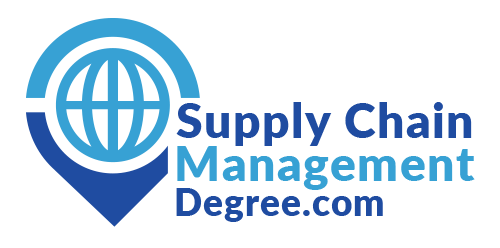
The Evolution of Supply Chain Management Curriculum: What’s New?
Supply chain management (SCM) is a dynamic field that plays a pivotal role in the success of businesses across industries. As the global marketplace continues to evolve and adapt to new challenges and opportunities, so too must the education and training provided to future supply chain professionals. In this blog post, we’ll explore the evolution of supply chain management curriculum, highlighting emerging trends, innovative approaches, and new developments that are shaping the education of tomorrow’s SCM leaders.
Embracing Digital Transformation
In today’s digital age, technology is reshaping the landscape of supply chain management. As a result, modern SCM curriculum is increasingly integrating topics such as data analytics, artificial intelligence, blockchain technology, and Internet of Things (IoT) into coursework. Students are learning how to harness the power of data analytics to optimize supply chain operations, improve forecasting accuracy, and enhance decision-making processes.
Sustainability and Corporate Social Responsibility
With growing concerns about environmental sustainability and social responsibility, supply chain professionals are expected to prioritize ethical practices and sustainability initiatives. As a result, many SCM programs are incorporating coursework on sustainable supply chain management, circular economy principles, green logistics, and corporate social responsibility (CSR). Students are learning how to integrate sustainability considerations into supply chain design, sourcing decisions, and distribution strategies.
Globalization and International Trade
The increasing interconnectedness of the global economy has led to a greater emphasis on international trade and cross-border supply chain management. Modern SCM curriculum includes coursework on global logistics, trade compliance, import/export regulations, and international supply chain risk management. Students are gaining a deeper understanding of the complexities of managing supply chains across diverse geographic regions and cultural contexts.
Supply Chain Resilience and Risk Management
In the face of disruptions such as natural disasters, geopolitical tensions, and global pandemics, supply chain resilience has become a critical priority for businesses worldwide. As a result, SCM programs are focusing on equipping students with the knowledge and skills to identify, assess, and mitigate supply chain risks. Topics such as risk management strategies, supply chain agility, business continuity planning, and crisis management are now integral components of the curriculum.
Soft Skills and Leadership Development
In addition to technical competencies, today’s supply chain professionals are expected to possess strong interpersonal skills, leadership abilities, and cross-functional collaboration capabilities. As a result, SCM curriculum now includes coursework on communication skills, teamwork, negotiation techniques, and change management. Students are honing their soft skills through group projects, case studies, and experiential learning opportunities.
The evolution of supply chain management curriculum reflects the dynamic nature of the field and the evolving needs of businesses in today’s global marketplace. By embracing digital transformation, prioritizing sustainability and CSR, emphasizing global trade and risk management, and fostering soft skills development, SCM programs are preparing students to navigate the complexities of modern supply chains and drive innovation and success in the industry. As the field continues to evolve, it is essential for SCM educators to stay abreast of emerging trends and adapt their curriculum to meet the evolving needs of students and the industry.


